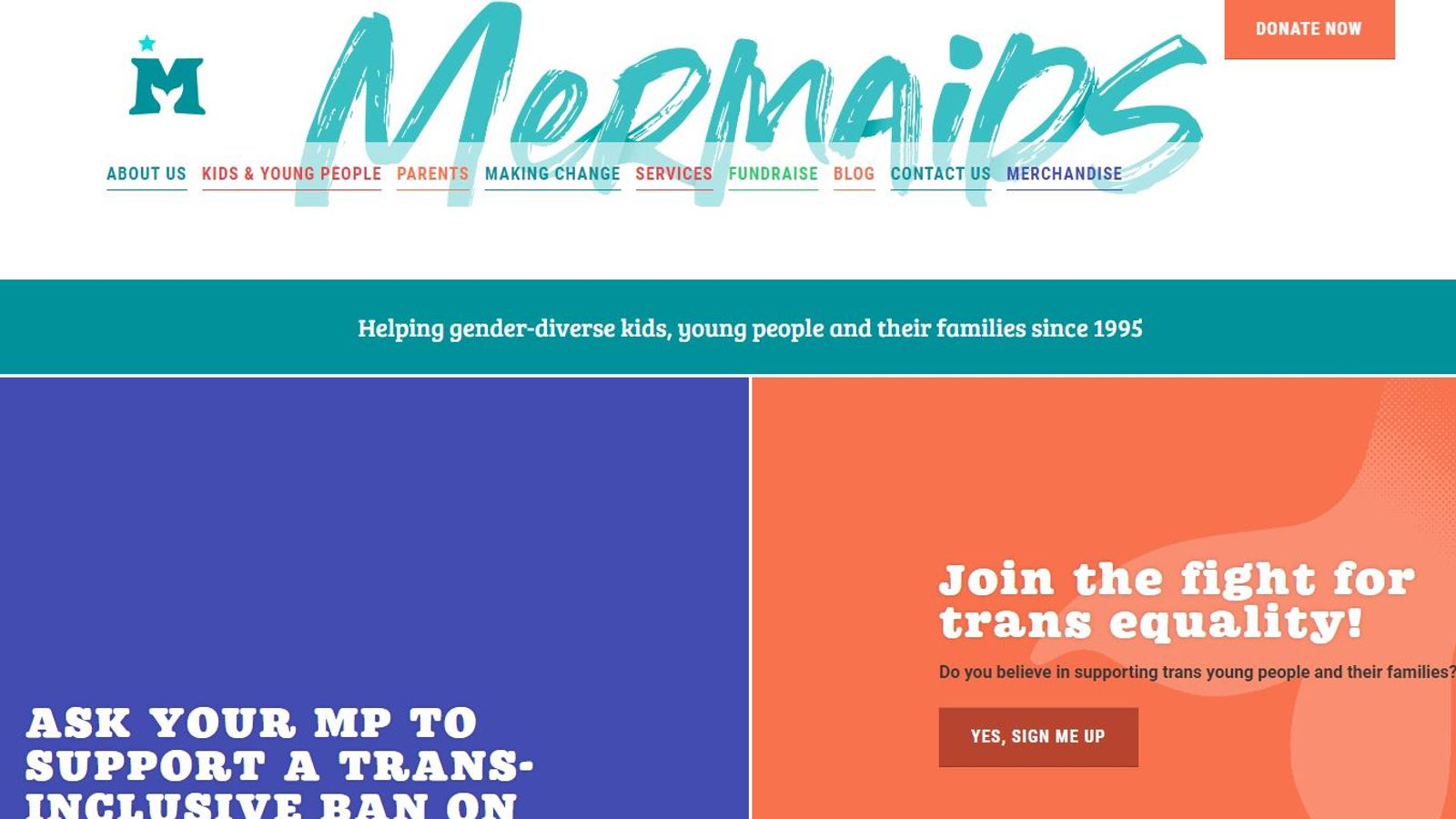Trans charity Mermaids is being investigated after it reportedly offered chest binders to teenage girls against their parents’ wishes.
Concerns have been raised about its “approach to safeguarding young people”, a spokeswoman for the Charity Commission said.
“We have opened a regulatory compliance case and have written to the trustees,” she added.
“We now await their reply.”
According to The Telegraph, Mermaids offered to send a breast flattening device to a girl it believed was 14.
It is alleged to have happened “even after (Mermaids) were told that she was not allowed to use one by her mother”, the newspaper added.
The Metropolitan Police has said breast binding can cause “serious physical issues”, including cysts and tissue damage.
It adds, on its website: “Although there’s no specific law within the UK around breast ironing, it’s a form of child abuse.”
Dr Hilary Cass, who is leading a review of gender identity services for children and young people, said in her interim report that binding breasts can be “painful and potentially harmful”.
Transgender Trend, an organisation “concerned about the current trend to diagnose children as transgender”, tweeted: “At last, parents’ concerns about Mermaids promotion of binders and (puberty) blockers are being heard.”
The Telegraph said Mermaids’ online help centre has been telling teenagers that hormone-blocking drugs are safe and “totally reversible”.
In a statement, Mermaids described puberty blockers as “an internationally recognised safe, reversible healthcare option which have been recommended by medical authorities in the UK and internationally for decades”.
But the NHS, on its website, says: “Little is known about the long-term side effects of hormone or puberty blockers in children with gender dysphoria.”
It adds: “Although GIDS (NHS Gender Identity Development Service) advises this is a physically reversible treatment if stopped, it is not known what the psychological effects may be.”
The NHS recently announced it was shutting down its gender identity clinic for children and young people at the Tavistock & Portman NHS Foundation Trust in north London.
It subsequently emerged that the trust may face legal action over claims it “rushed” some young patients into treatment, including the use of puberty-blocking drugs.
Mermaids issued a statement in response to The Telegraph’s reporting, saying that for people with bodily dysphoria, “binding, for some, helps alleviate distress”.
It added: “Mermaids takes a harm reduction position with the understanding that providing a young person with a binder and comprehensive safety guidelines from an experienced member of staff is preferable to the likely alternative of unsafe practices and/or continued or increasing dysphoria.
“The risk is considered by Mermaids staff within the context of our safeguarding framework.”












